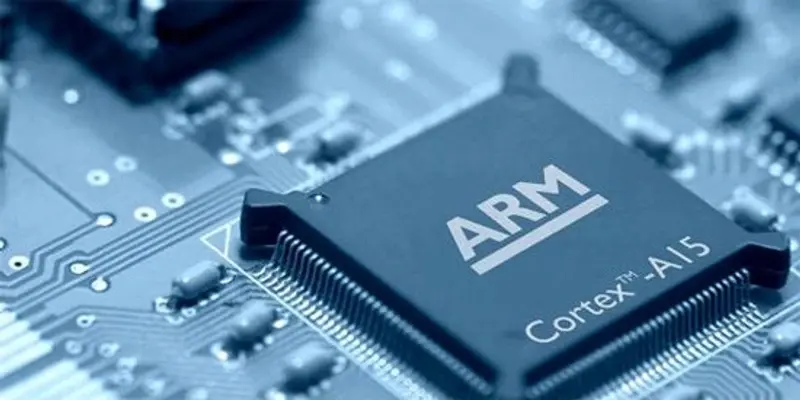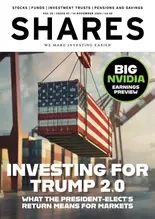
It is easy to see why the market likes full-year results from FTSE 100 technology group ARM Holdings (ARM), sending its shares up 3.8% to a record high of 926p. It is a brilliant company, fantastically positioned at the heart of technology hotspots. It's not just a UK tech champion; the Cambridge-based £12.5 billion chip designer is a global phenomenon.
Peel Hunt analyst Paul Morland calls the latest results: 'the strongest we have ever seen from ARM.' Headline figures show fourth quarter pre-tax profits of £80 million, up 16%, on £164.2 million of revenues, numbers that beat even the most ambitious City forecast.
The share price is up by a third in the past three months, over 60% in a year. Investment guru Jim Slater once said 'elephants don't run,' but he obviously wasn't talking about the spring-heeled semiconductor firm.
But can the company stay at the top and keep on growing at such startling rates? Apple (AAPL;NDQ) has recently shown the difficulty of consistently repeating the trick. In short, yes it can. It's already tied up about 90% of the smart phone market, and is a dominant force in tablets, too. Shipments of tablets are up 75% on a year ago, according to recent numbers crunched by market researcher IDC.
Most of this is based on CPU Cortex chips, but particularly interesting today is how well its Mali graphics designs are selling. Mali is embedded in about a quarter of its 2.5 billion Cortex chips, roughly four-times up year-on-year, while Mali licences have gone from three to seven in six months. That's something for Imagination Technologies (IMG), the UK's other major mobile device chip player, to worry about, perhaps. Factor in that even arch US rival Intel (INTC:NDQ), the PC chip daddy, is thought to be mulling licensing ARM technology and you can begin to see the potential scale of growth.
ARM is one of my picks in Shares' annual pairs trade portfolio (see Shares, Cover story, 20 December '12) at 759p.
(Updated 13:00)
There is a price for this excellence as the shares trade on 53.5 times forecast earnings for 2014. In normal circumstances, that is a very high rating. Alas few seem to know what is an appropriate rating for ARM. According to Morningstar, less than half of analyst recommendations are Buys or Sells, the majority are fence-sitting Holds. None of this may matter if you’re taking a long-term view, such as a 10 or 20-year investment in a pension, and ARM can sustain its level of earnings growth.




